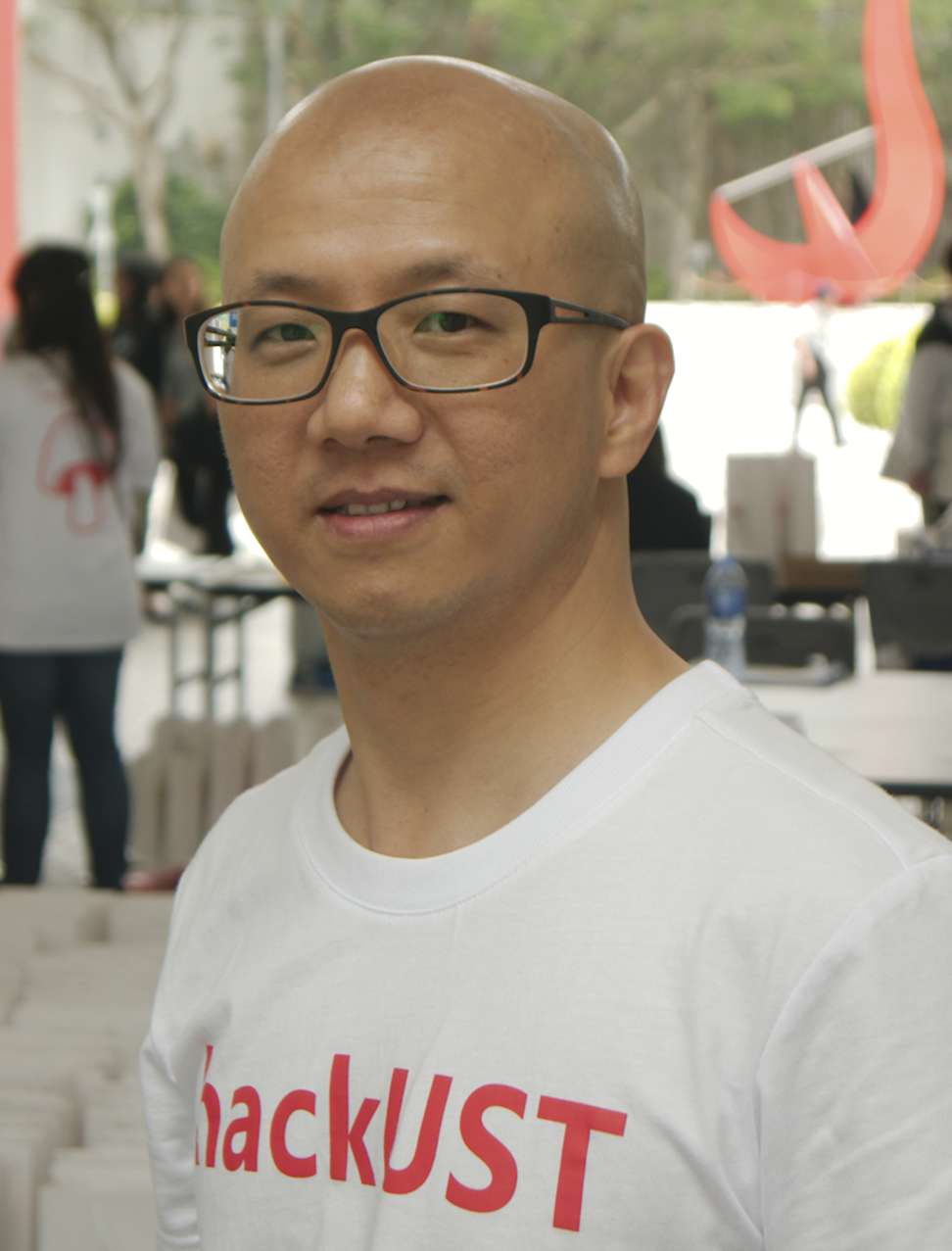
At Hong Kong hackathon hackUST, 24 hours to build a winning game or app that solves a social problem
Coders, designers and entrepreneurs locked away for 24 hours with free-flow pizzas and caffeine drinks as they compete to build winning digital solutions, but don’t expect contest to help their careers in tech-deficient Hong Kong
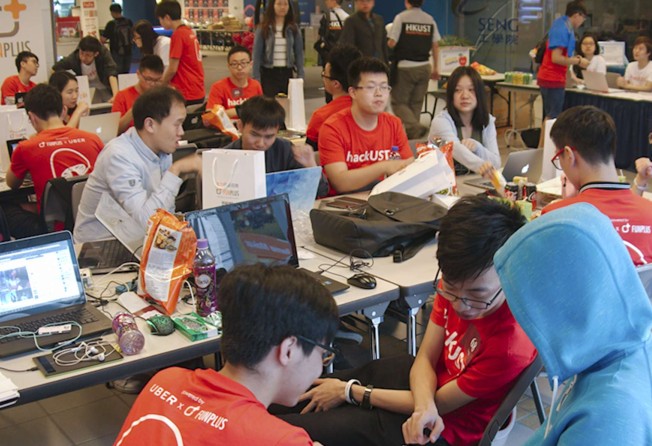
A team of young competitors gather intently around a computer screen while subconsciously shovelling potato chips into their mouths. Crammed in a room at the Hong Kong University of Science and Technology with hundreds of others for 24 hours, with a mountain of junk food, a few sleeping bags but no shower facilities, they are battling it out at hackUST, billed as the biggest university hackathon in Asia.
HackUST, now in its fourth year, encourages coders, designers and entrepreneurs to grapple with the challenges of exhaustion and personal hygiene to find digital solutions to real social problems in a creative and competitive environment. It also promotes teamwork and entrepreneurial skills, and performs a vital economic function . However, organisers say local hackathons don’t get the support they deserve.

Watching the earnest competitors – fuelled by 200 complimentary pizzas and unlimited caffeine drinks – bent over laptops is not everyone’s idea of a spectator sport, though it piqued the interest of senior executives from one of China’s leading gaming companies. Yitao Guan is the co-founder and chief technology officer of Funplus, and he and two colleagues have given up their weekend to be at the event. They are also sponsoring the biggest single prize of HK$40,000 plus an internship at their company headquarters in Beijing.
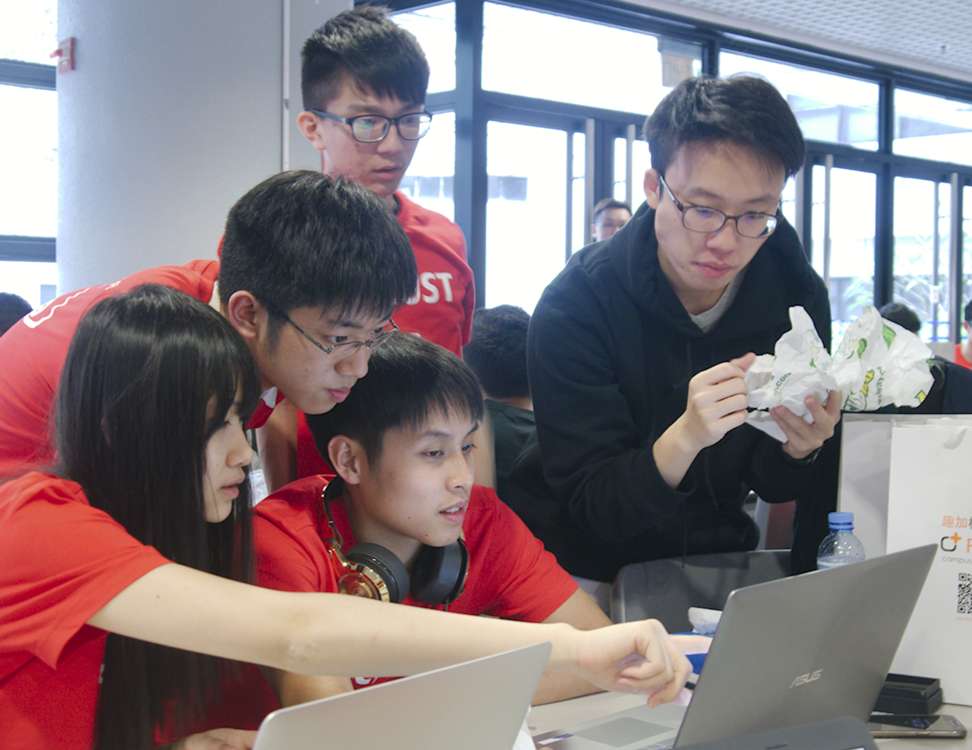
I tell employers I have won several prizes in international hackathons but usually they don’t even know what that is
Despite its name, Funplus is a serious business, and Guan says it is considering investing in a new office in Hong Kong or Singapore. Revenue from the global games market was estimated at US$99.6 billion in 2016 and Funplus, founded in 2010, already has a branch office in San Francisco, is valued at over US$1 billion and is one of Google’s 2017 top 30 Chinese global brand builders.
Gaming is one of four categories hackUST competitors can choose to compete in. There’s also a transport challenge, sponsored by Uber this year, which sets teams the task of solving Hong Kong’s traffic congestion problems. The economy section asks teams to create an O2O (online-to-offline or offline-to-online) service. The health section, sponsored by local e-data company Radica, invites hackers to crowd data to find ways to improve the city’s health.
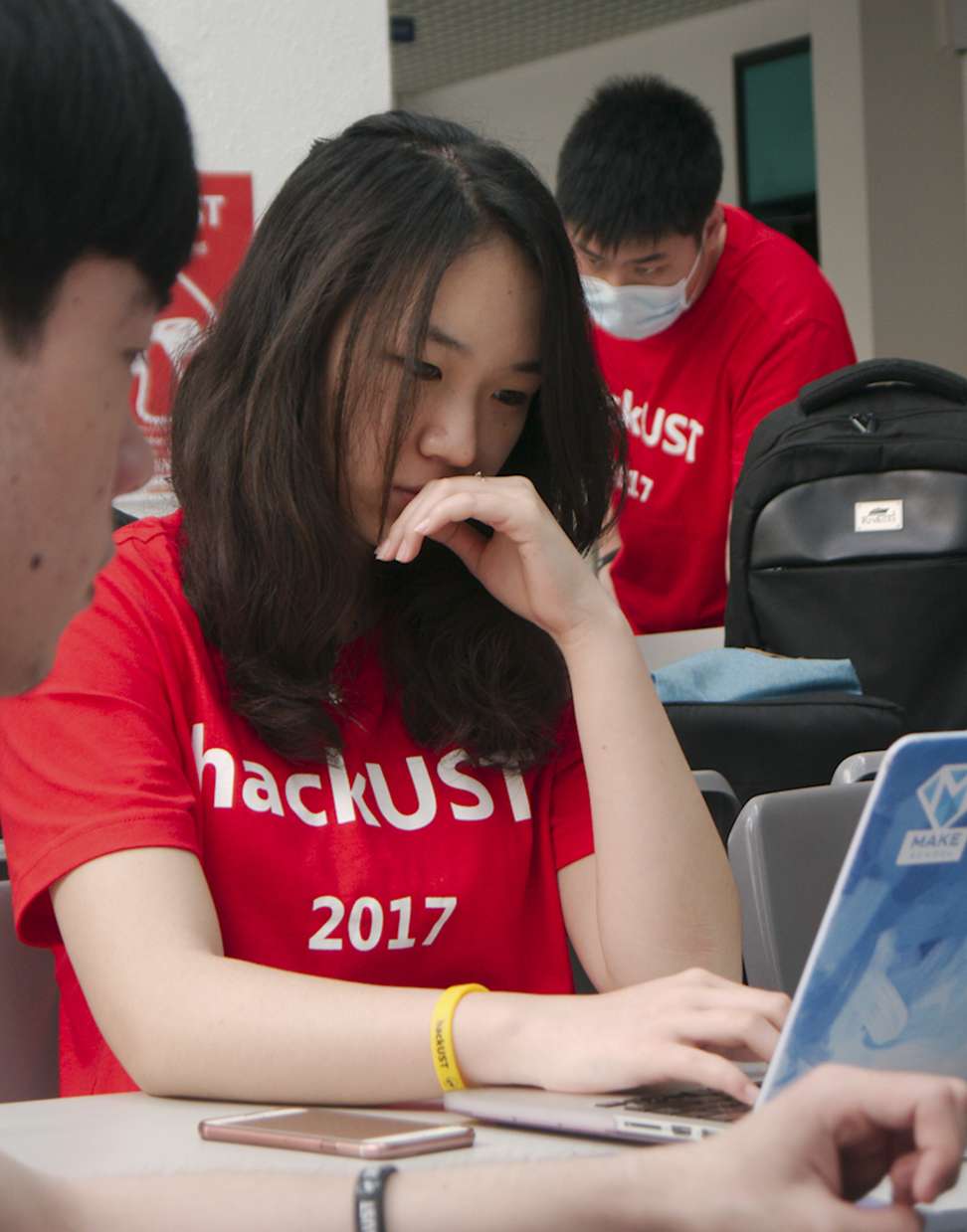
“Patients waiting for hours in clinics and hospital surgeries in Hong Kong is just a stupid problem,” explains Irene Cheung Chung-yan, co-founder of Radica, during the briefing session. She says open data is the key to a smart society and if the government would release waiting time data, the hackers could solve it.
One team with its eyes on the first prize of HK$5,000 for the health challenge is called Docta, and is led by talented 21-year-old hackathon veteran Justin Li Pun-wang, who has won several prizes for digital design.
“I brought my own sleeping bag and there are food coupons provided. Pizza is always a favourite but I bring my own snacks too – chocolate and chips to spike energy levels,” he says.
Li explains the importance of a strong UI/UX (user interface and user experience) in any winning technology. “I usually use Photoshop to ensure the product looks nice and flows properly for the user,” he says.
Five is the ideal number for a hackathon team, Li believes. Each team will comprise a mix of entrepreneurs (wearing yellow wristbands), designers like him (wearing white wristbands) and at least two coders (wearing black wristbands) so that one coder will be able to get some sleep during the competition.
Despite his successful track record in hackathons, Li doesn’t regard digital design as a viable career path in Hong Kong and is currently studying journalism at Chu Hai College. He says Hong Kong offers few opportunities for hackathon winners; employers only attach value to degrees or other formal qualifications.
“I tell employers I have won several prizes in international hackathons but usually they don’t even know what that is,” he says.
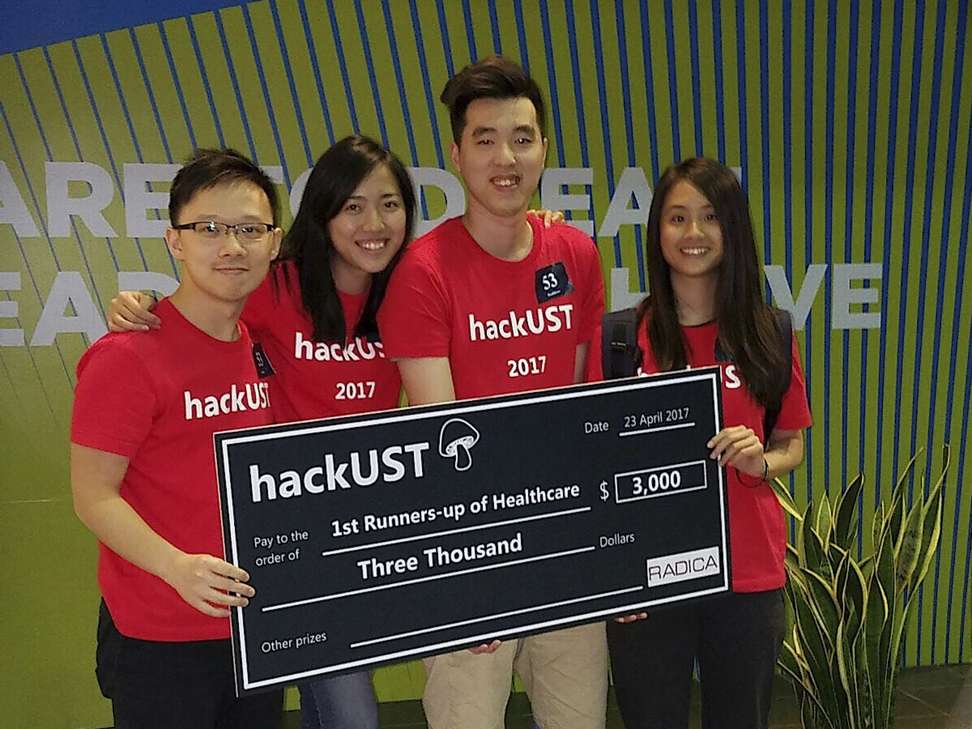
His Docta teammate and designated coder, Chantal Neo, is a HKUST exchange student from Singapore, who is studying business but is focused on information technology. “I will follow a career in IT systems but not here – it’s a good career with high demand in Singapore,” she says.
Susan Chan man-wa is a HKUST graduate and now senior consultant at IBM global business services. She is one of two entrepreneurs in the Docta team responsible for pitching ideas to judges and analysing their commercial viability.
I will follow a career in IT systems but not here
“I am here for fun, really. Large corporations are inevitably restricted by protocols and I just enjoy dealing with something new and inventive,” she says.
The second Docta entrepreneur in their team is Ken Wong Ka-chun, an operations manager for a well-known financial publishing company in the city. He says he too enjoys the creativity and entrepreneurial element, but he doesn’t tell his boss about his interest in hackathons.
“I like the idea of using technology to solve social problems but my boss would not even know what a hackathon is,” he says, backing up other competitors’ comments on the disconnect between the mainstream Hong Kong business sector and the creative digital sector that represents its future.
Organiser Donny Siu says in the US it is increasingly common for people to become professional hackathon competitors, taking part in 100 events a year, as they are an integral part of the US’ knowledge-based digital economy. He thinks the hackathon suffers from a perception problem in Hong Kong; it’s either not understood at all or more often dismissed as the preserve of young male computer geeks.
“The hackathon is about promoting the spirit of the entrepreneur. We reach out to non-technical people too and bring together people of different backgrounds, ages and nationalities,” he says.
“This year we introduced health care as a theme. Hong Kong has an ageing population and we have a good opportunity to improve an important social issue,” he says, insisting that many such ideas can be developed into commercial products.
The Singapore mentality is much further ahead than here – they started much earlier
Siu introduces former winner Johannes Jaeger, a German-born Hongkonger referred to by several competitors as a local “hackathon legend”, who took his innovative app Plain Exchange to the market.
Plain Exchange is a platform that helps travellers exchange leftover currencies for ones they need, by matching them with fellow travellers in their vicinity. Unlike banks, it charges no commission, allows the exchange of very small amounts, and allows users to search for offers via the mobile app and connect with users they want to exchange with. Like all the best ideas, it is very simple. Jaeger is also organising a major upcoming hackathon called Hackhorizon, in partnership with British Airways.
“In Hong Kong, few people want to go for a start-up and kids tend to look at finance or law, so [a] hackathon can be a way of encouraging this start-up entrepreneurial spirit,” Jaeger says.
Comparing the scene in Hong Kong with that of Singapore, he says: “Singapore and Hong Kong are easy to compare because the Singapore mentality is much further ahead than here – they started much earlier.”
This year, hackUST overruns, and by the time the prize giving takes place on Sunday afternoon, some of the competitors have been without sleep for nearly 36 hours, and look dead on their feet.
“Two of our team went home for a two-hour nap last night but I have not slept at all,” says an exhausted Li, who is disappointed to receive only second prize for his team’s Docta app, despite a slick video presentation.
Docta offers a Google map of all suitable clinics in the vicinity with a full description of services, and allows users to check availability and book an appointment in real time. It also allows the clinic to register patients, monitor peak demand periods and receive patient feedback without the need for time-consuming paper form filling. The winning entry was a food health app that allows consumers to monitor sugar and salt levels in thousands of local food products.
“Hackathon is not just about winning prizes,” says Li magnanimously. “It’s also about making new friends, being creative, working as a team and solving problems.”